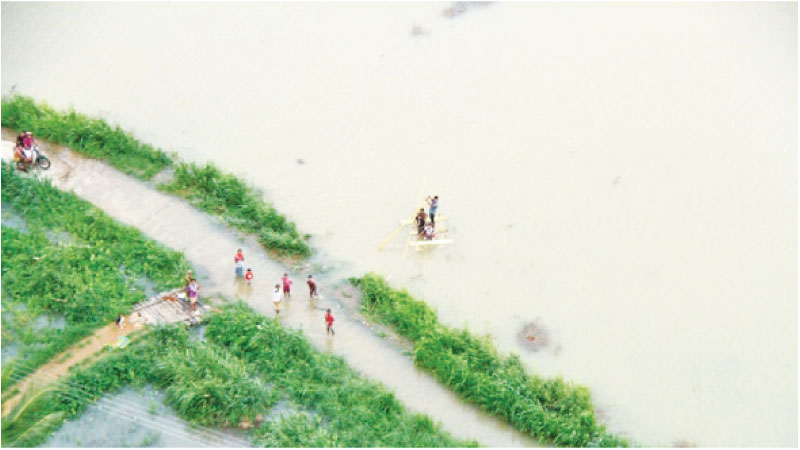- Climate Resilience Multi-Phase Programmatic Approach project is the first of a three-phase investment program totaling $774 million and to be implemented over eight years
- This comprehensive climate resilience program will reduce losses to people’s livelihoods and public assets while reducing shocks on the economy
The World Bank approved a $310 million loan to reduce and mitigate flood risks in the lower Kelani basin in Colombo and improve weather forecasting and early warning systems across Sri Lanka, yesterday.
The Climate Resilience Multi-Phase Programmatic Approach project is the first of a three-phase investment program totaling $774 million and to be implemented over eight years. Sri Lanka ranked second among countries most affected by extreme weather events in 2017 and is expected to see a 1.2 percent annual GDP loss by 2050 due to climate change. Floods impacted around 14 million people between 2010 and 2018 and droughts affected about 12 million people. Evidence suggests flood frequency will increase and that nearly 87 percent of Sri Lankans are living in areas likely to experience extreme temperatures and rainfall that will impact their lives.
“This comprehensive climate resilience program will reduce losses to people’s livelihoods and public assets while reducing shocks on the economy,” said Idah Z. Pswarayi-Riddihough, World Bank County Director for Nepal, Sri Lanka and Maldives. “Compelling evidence has informed this long-term program which will help the government build socially responsive infrastructure and communication systems to protect lives and assets.”
The program aligns with the government’s plans to ensure fiscal and physical resilience and reduce the vulnerability of Sri Lanka’s economy in the aftermath of the 2016 and 2017 floods. The new forecasting systems are expected to benefit the entire nation, including 3.5 million beneficiaries living in flood-prone areas in 25 river basins. Federica Ranghieri and Suranga Kahandawa Senior Disaster Management Specialists and Task Team Leaders emphasized that the data used in the project will help inform the public and policymakers in decision making related to responding to climate change threats. The project, financed by the International Bank for Reconstruction and Development, consists of a loan with a maturity of 32 years including a grace period of 7 years. The first phase of the Program will be implemented over a five-year period and preparation of the following phases will overlap to ensure effective implementation. The Program has been designed with flexibility for adaptive learning and the potential for private sector participation.



Add new comment